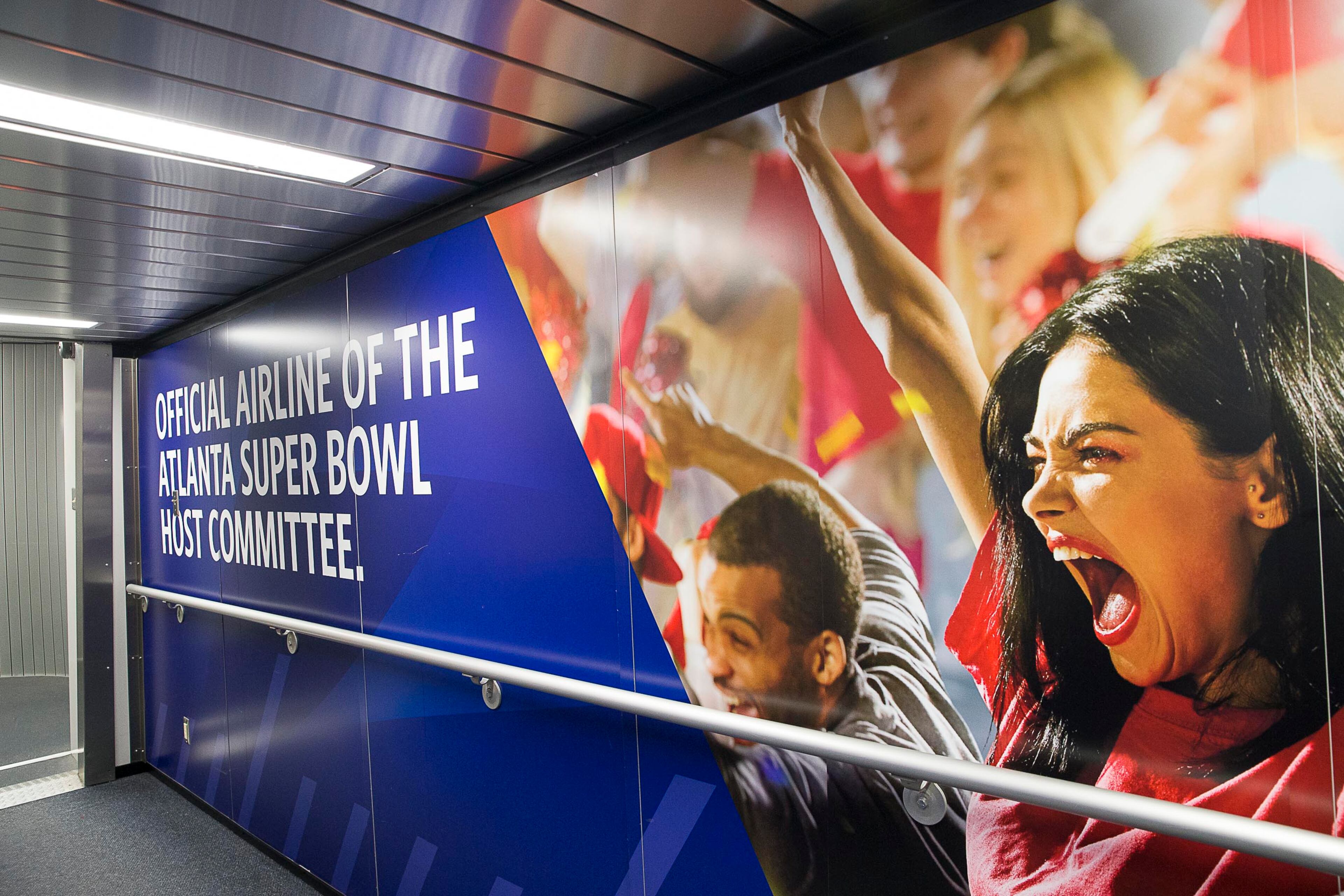Inside Delta’s marketing machine: This exec sees luxury experiences as key.

Atlanta-based Delta Air Lines went from bankruptcy to becoming one of the most recognizable brands in the world, often associated with jet-setters and aspirational travel.
How did that happen?
Improved operations and amenities for sure. But a lot of it has to do with marketing.
For more than a decade, Delta has focused on building a reputation for premium service, with vast marketing efforts that tell you they’ll “Keep Climbing” and convey that flying on Delta is an experience, not just a form of transportation.
The person overseeing Delta’s marketing machine since 2023 is Alicia Tillman, who joined the airline as chief marketing officer after similar roles at financial technology firm Capitolis and software maker SAP.
Tillman, who once envisioned becoming a screenwriter but saw marketing as “the next closest thing,” has also worked as a vice president in marketing at key Delta partner American Express.

Now at Delta, Tillman is particularly focused on how the airline can “personalize” its interactions with travelers and give them luxurious experiences they’re looking for.
The goal, Tillman said, is for a customer to feel “like we’re speaking directly to them, because we know them.”
It’s part of a broader Delta strategy of becoming more than a just airline, but a premium lifestyle brand.
One-of-a-kind customers
After emerging from Chapter 11 restructuring in 2007 and completing its acquisition and integration of Northwest Airlines in 2010, Delta turned to an effort to improve its standing in the industry.
“They realized, I think internally, that there was really no U.S. airline that was holding a premium position. And they decided to go all in on that,” said Scott Ambrose, an associate professor of marketing at Embry-Riddle Aeronautical University and an expert in airline branding. “They really focused heavily on running a reliable airline that they could then sell to corporations.”
Corporate travelers are “some of the best paying passengers,” kicking off Delta’s premium focus, he said. It eventually became the most profitable U.S. airline, generating billions of dollars to reinvest in improving its service. But it wasn’t a quick fix.
“Brand building … it’s a long process,” Ambrose said. “It’s like exercise. It’s painful, but you keep at it year after year, then you eventually reap the rewards and things get easier. You kind of develop this snowball effect, and Delta’s been able to do that.”

Delta has become respected enough for its customer service that it’s one of the companies MARTA recently sought advice from to improve its customer experience and prepare for the World Cup next year.
Now, Tillman says the next step at Delta is giving customers more personalized service.
“Customers no longer want to feel like one of many,” Tillman said. “They want to feel like the only one.”
That’s evident when, say, Delta customers pay hundreds of dollars for access to Sky Clubs, aspiring to the exclusive feel of a private lounge.
But it’s not easy to deliver when thousands fly every day. At Sky Clubs, for example, overcrowding the past few years has left many waiting in long queues and jockeying to find a seat.
It’s an example of the challenges of selling luxury to the masses. So many people have been drawn to premium experiences offered by Delta that sometimes, it doesn’t feel as exclusive anymore.

Tillman says using data and technology to personalize offers is a solution, allowing customers “to feel like we’re speaking directly to them.”
There is some skepticism about the personalization trend. Broadening use of artificial intelligence is prompting fears Delta will use AI to charge some customers higher fares.
Delta, for its part, says it is not targeting customers with individualized offers based on personal information.
“We are incredibly protective and transparent” with the intelligence derived from customers, Tillman said.
What she said she is considering is: “How do we start to serve up offers to (customers) that matter to them based on history of what they’ve purchased in the past, or what we know that they like or what they dislike?”
There may also be different preferences for leisure or business travel, for different age groups or for women versus men, she said.
Women are “a very significant segment for us,” now making up a majority of Delta’s SkyMiles frequent flyer members, she said. That shift is occurring amid an increase in women in leadership positions in the workforce and traveling for business, she added.
Luxury experiences
Tillman said there are also new ways consumers are thinking about luxury that present opportunities for Delta.
“Ten plus years ago, a luxury item was considered an expensive product,” Tillman said. “It could be an expensive handbag … an expensive piece of clothing.”
But today, “luxury is more often than not defined as an experience,” she said. “It could be going to the Super Bowl or going to take a vacation to an African safari.”

Delta is trying to capitalize on this with a relaunch of its SkyMiles mileage auction website focusing on special trips or experiences that frequent flyer members can bid on with miles — sometimes hundreds of thousands of miles.
One recent example: Tickets to the Opening Ceremony, women’s ice hockey and speed skating events at the Olympic Winter Games in Milano Cortina in 2026, with a four-night stay in Milan, for a bid of at least 503,000 SkyMiles.
Some are less spendy, such as premium seats and a studio tour at The Drew Barrymore Show in New York for bids of at least 25,000 miles.

Delta wants to create “once in a lifetime, in some ways unbuyable experiences,” Tillman said.
And, “we want packages for women, specifically wellness packages … sessions with influencer stylists,” she said.
A key reason: follow the money.
“Women are amassing more wealth than they ever have before in history,” Tillman said. “They’re often the No. 1 decision makers of household spend.”
“They’re also the chief decision makers around how to create lasting, household family memories. And in doing so, they want experiences,” she said. “They’re spending more on luxury and premium, and you start to see … why it’s such a high-performing segment for Delta.”
The focus on women as a strong and growing customer segment also reflects a broader target, according to Dionne Nickerson, an assistant professor of marketing at the Goizueta Business School at Emory University. Because some women make travel decisions for their entire family, that extends Delta’s reach to spouses, children and others.
“It makes a lot of sense,” Nickerson said. “At the end of the day, companies are concerned about their bottom line.”

Leaning in through partnerships
Delta is sharpening its focus on women through partnerships with the WNBA and Spanx, sponsoring the women’s basketball league and launching a limited edition line of Delta Spanx clothing.
The airline is also partnering with women’s business community Female Quotient for a series of events called “Women on the Rise.” It has held events in Seattle, New York and Boston, inviting female senior leaders in business to attend and bring an up-and-coming woman along with them.
The idea is “to introduce them to this sort of established network,” Tillman said. Delta invites female influencers to the spotlight, such as American track and field Olympian Allyson Felix, who spoke at the Boston event and is a Delta-sponsored Team USA athlete ambassador.
“She’s an Olympic gold medalist and wanted to be a mom and was trying to figure out, like, ‘Gosh, can I do both?’” Tillman said. “Which is often a question we get from women who want to pursue a career but also want to pursue a family.”
“It’s obviously not easy. It’s hard,” Tillman said. “It all comes with ups and downs. And so we love to create these forums to have those conversations.”
A ‘maniacal focus’
That may have little to do with air travel. But such partnerships are part of Delta’s broader move to “truly be a lifestyle brand … a core brand in your everyday life,” like Apple, Ambrose of Embry-Riddle said. “To do that, obviously they have to expand out beyond just taking you from Point A to Point B.”
But he noted there are some risks to focusing on premium customers if economic challenges “turn off the younger crowds in the future.”
And he said even as Delta focuses on exclusive experiences and personalization, the basics still matter. If there’s another major operational disruption like the meltdown last year during the CrowdStrike outage, it could still pose a threat to the airline’s reputation in the eyes of consumers.
“What started all this was their maniacal focus on operational reliability,” Ambrose said. “If they lose sight of that, then this other stuff is not going to matter.”
AJC Her+Story is a new series in The Atlanta Journal-Constitution highlighting women founders, creators, executives and professionals. It is about building a community. Know someone the AJC should feature in AJC Her+Story? Email us at herstory@ajc.com with your suggestions. Check out all of our AJC Her+Story coverage at ajc.com/herstory.



